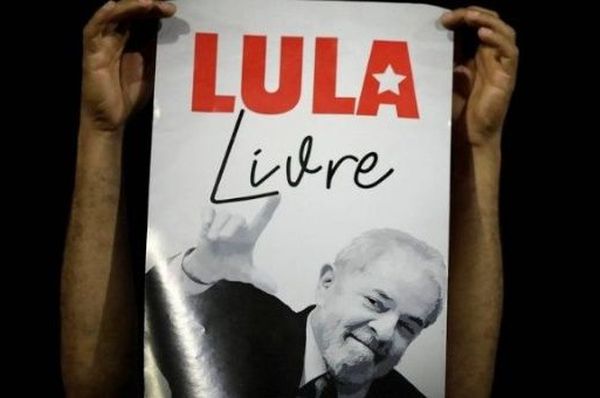
The Supreme Federal Court (STF) judge, Gilmar Mendes, cleared for trial on Monday the request for freedom of former president Luiz Inacio Lula da Silva, according to Brazilian media.
The habeas corpus (HC) was presented by Lula’s defense last year when then-judge Sergio Moro accepted Brazilian President Jair Bolsonaro’s appointment to lead the Justice Ministry. This time around it is expected that the request will be analyzed on Tuesday or June 25, by a Second Panel of the STF.
The procedure had already entered the agenda of the Supreme Court on December 2018, yet the trial was suspended on December 4 after Mendes requested a hearing. At the time of the halt, the score was two votes against Lula’s HC by rapporteur Edson Fachin and judge Carmen Lucia.
With the partial vote, and as the trial has been cleared, judges Mendes, Celso de Mello, and Ricardo Lewandowski still have to vote.
According to Brazilian journalist and analyst, Breno Altman, the result of the vote presented by Lula’s lawyers will be 2-2 tomorrow, with the decision falling on the hands of justice de Mello.
Another request for Lula’s release, which questions the performance of Lava Jato’s judge at the STJ, Felix Fischer, also entered the Supreme Court’s agenda on Tuesday. Mendes asked for a judgment in the plenary session.
The recent update on Lula’s case comes a day later The Intercept Brazil published an extensive and hard-hitting expose on the alleged political motivations behind Operation Car Wash (Lava Jato) task force against the former president and the Worker’s Party (PT), as well as the unethical involvement of current Minister of Justice, Moro.
The documents were released in a three-part series where according to The Intercept, it is proven, based on leaked documents and Telegram messages between prosecutors and Moro that the “apolitical” and “unbiased” team spent hours internally plotting how to prevent the return to power by Lula and his party. As well as the lack of hard and documented evidence to establish a case against the former head of state.
 Escambray ENGLISH EDITION
Escambray ENGLISH EDITION





Escambray reserves the right to publish comments.